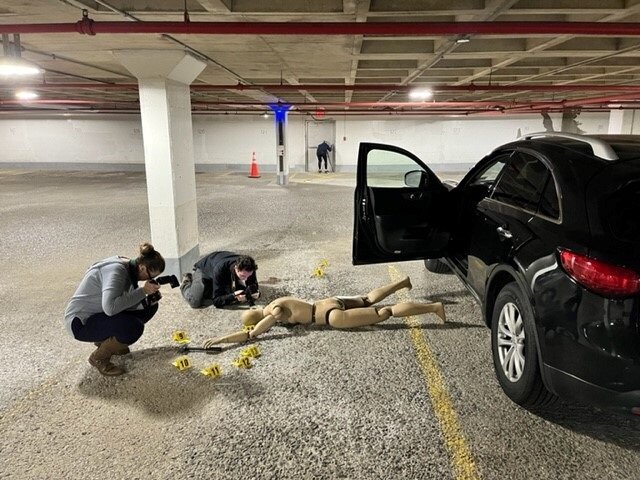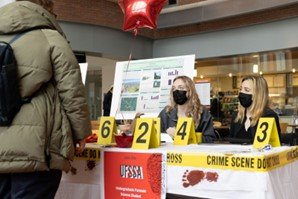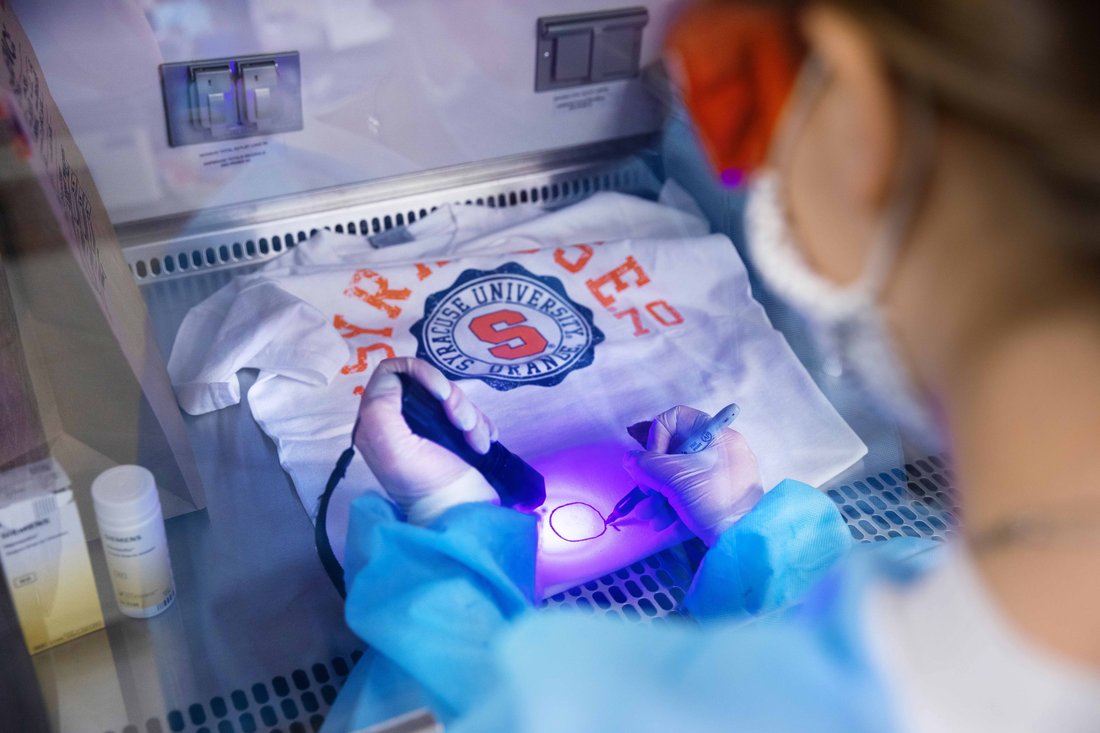
College of Arts and Sciences
Curriculum
A strength of the forensic science integrated learning major is that it must be paired with a base major that aligns with your interests and career goals. For example, if you’re interested in working in a forensic science laboratory, you should also major in biology or chemistry. If you’re interested in criminal justice or national security, consider psychology or anthropology. A professional advisor and faculty mentor will help with major selection early in your four-year plan.
In addition to the coursework required for their second major, forensic science students take two broad-based courses in forensic science, one course in statistics, one course that connects their two majors and three advanced electives in forensic science and/or related areas. A capstone course is also required.
- Explain the scientific foundational principles of forensic science and how they relate to the area of the second major.
- Demonstrate an understanding of the relationship between forensic science and the legal system.
- Demonstrate the ability to use a rationale-based approach in problem-solving and/or to evaluate and analyze forensic practices as related to the reliability, accuracy and limitations of forensic science.
- Become oriented in the ethical standards, integrity, professionalism and quality assurance protocols and standards in the field of forensic science.
- Contact an expert and use their feedback to design and conduct a research project.
- Effectively communicate scientific principles, research questions and project investigation with objectivity and transparency to stakeholders, including scientists and nonscientists.
A second major is required for all students majoring in forensic science and determines whether a student will graduate with a B.A. or B.S. degree. For example, a student who pursues a B.A. in anthropology alongside their forensic science coursework will graduate with a B.A., whereas a student who pursues a B.S. in biology alongside their forensic science coursework will graduate with a B.S. The B.A. and B.S. forensic science requirements are the same.
- Forensic Chemical Analysis
- Crime Scene Investigation
- Firearms and Impression Evidence
- Forensic Mental Health
- Latent Prints
Extracurricular Opportunities
Advanced Laboratory Coursework
Our courses provide students with hands-on exposure to tools and techniques used in different areas of forensic science. In courses like Latent Print Processing, Crime Scene Investigation, Bloodstain Pattern Analysis and Forensic Analysis of Biological Evidence, students can learn practical skills in evidence collection and analysis.

Undergraduate Forensic Science Student Association
Any student at Syracuse with an interest in forensic science can join the Undergraduate Forensic Science Student Association. Members participate in social events and also benefit from academic support, professional development opportunities and community engagement activities related to forensics.

Learn more about this program

